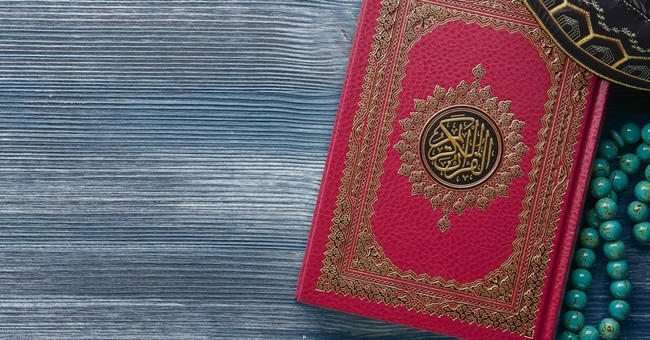

When looking for charitable organizations and social clubs to join, you may run across the Order of the Eastern Star.
Billed as an organization promoting fraternal love and good works, it may seem a tempting club to join. However, before diving in, there are some considerations to be taken into account.
The website for the General Grand Chapter of the Order of the Eastern Star explains the organization this way:
“The members of the Order of the Eastern Star are dedicated women and men who sincerely reflect the spirit of fraternal love and the desire to work together for good. It gives them the opportunity to give a part of their time to many projects that benefit mankind. Our lessons are scriptural, our purposes are beneficent, and our teachings are moral.”
The Order of the Eastern Star sprouted from Masonry, and members are required to be connected with the Masons, though it does not technically boast direct affiliation.
The Order originally was originally designed for the wives, daughters, and female relatives of Masons, with a few men in positions of leadership, but it is now open to both men and women.
The Order was designed by Dr. Robert Morris, a Mason. He began work on it in the mid-1800s, but the first Grand Chapter was established in Michigan in 1867.
The Eastern Star’s website explains, “Dr. Morris had the idea that it would be nice to have a way for female relatives of Master Masons to share the benefits of knowledge and self-improvement that Freemasonry made available to men and to have a place in the Masonic Family that would allow men and women to participate together.”
The Order was under the leadership of Morris from about 1850 to 1866, then transferred to Robert Macoy in 1866 until 1876. The General Grand Chapter was established in 1876, and its website proudly proclaims “Eastablished (sic) in 1876,” as this system has remained until the present day.

Photo Credit: ©Getty Images/HalimLotos
Christians are welcomed into the Order. Members do not have to be Christian, but they must profess belief in a “Supreme Being.” However, there are multiple other requirements. The Grand Chapter of California lists the following:
“A petitioner must (a) be of good moral character, (b) believe in a Supreme Being, (c) have attained the age of eighteen (18), (c) believe in the laws of the United States of America, (d) be willing to assume the obligation of the Order, (e) be able to participate, with assistance if needed, in the Ceremony of Initiation, (f) be free from disqualifying mental illness, (g) be a resident of the State for six months, with some exceptions, and (g) be free of felony conviction (or judgment as a habitual criminal) under any State or National laws.”
So if you do qualify, should you join? There are a few things you should carefully consider first. Here are five warnings about the Order of the Eastern Star you should consider before joining:
The Order is open to people of all religions. However, it also has a sizeable library of prayers, and prayer is included in the extensive ceremonies held by the Order. This brings up interesting questions—what God, exactly, are the prayers directed to? Since all religions are welcome, is this the God of Christianity? Of Islam?
When a man becomes a Mason, according to an NPR interview with Brent Morris of The Scottish Rite Journal, he is asked to place his hand upon the holy book he considers binding. Copies are kept of the Bible, the Bhagavad-Gita, the Old Testament, the Zend-Avesta, the Sutras, and the Quran.
Writings by Dr. Robert Morris, founder of the Order of the Eastern Star, indicate that he considered the gods of all religions the same God under different names. In Webb’s Monitor, for example, Morris wrote:
“So broad is the religion of Masonry, and so carefully are all sectarian tenets excluded from the system, that the Christian, the Jew, and the Mohammedan, in all their numberless sects and divisions, may, and do harmoniously combine in its moral and intellectual work with the Buddhist, the Parsee, the Confucian, and the worshipper of Deity under every form.”
Though the Order of the Eastern Star is not touted as a religion, Morris seemed to consider it one—note his phrasing of “the religion of Masonry."

Photo Credit: ©GettyImages/Andrii Yalanskyi
As noted above, the Order is selective. First, a member must be a female relative of a Master Mason or be a Master Mason. Rules are laid out at length as to what degrees of relation to a Mason qualify. Other requirements include being over the age of 18, being a resident of a state for a certain amount of time, being free of a criminal record of felony or habitual crime, assuming certain obligations, being able to participate in rituals, and even being free of “disqualifying mental illness.”
Christianity, on the other hand, does not select members by blood, homeland, or residence. “There is neither Jew nor Gentile,” Paul asserts in Galatians 3:28, “for you are all one in Christ Jesus.”
The Lord does not limit by age. Jesus said, “Let the little children come to me, and do not hinder them, for the kingdom of heaven belongs to such as these” (Matthew 19:14).
The Gospel is not limited to those who are able-bodied or capable of performing certain acts. The gift of God is freely given regardless of works (Ephesians 2:9). It is certainly not limited to the healthy, and no one is disqualified by illness. Jesus was passionate about helping the outcast, the leper, those considered mad by society.
The Gospel is not only for those with a “clean record.” One of Christianity’s main tenets is that “all have sinned and fall short of the glory of God” (Romans 3:23). Jesus told the thief on the cross, a criminal under the death penalty, “Truly I tell you, today you will be with me in paradise” (Luke 23:43). The Apostle Paul actively persecuted and murdered Christians before turning to Christ himself.
Though it is the nature of many clubs and jobs to be exclusive, one as deeply tied to religion (with its prayers and rituals) as the Order setting up so many gates and boundaries poorly reflects the reality of the Gospel and the love of Christ.
If the symbol of the Order seems familiar, that’s probably because it is. The upside-down five-pointed star, or pentagram, is also the symbol of the Church of Satan and a well-known symbol of the occult.
The Order of the Eastern Star claims that the star comes from this biblical passage in Matthew 2:2: “Where is the one who has been born king of the Jews? We saw his star when it rose and have come to worship him.” Other translations render “when it rose” as “in the east,” making the verse read, “We saw his star in the east.”
However, many argue a star in the east and the Eastern Star are two different things. The Eastern Star was long known as Sirius, the Dog Star, or the star of the Egyptian god of chaos, Set.
Though no claim is being made here that the Order is occult, the parallels have raised alarm for many.
The Order strongly maintains in their FAQs that they are not a secret society. However, details of the Order prove hard to research—and often contradict—especially about certain elements that are considered secret, including the meaning of the letters “FATAL” in the Order’s symbol.
The Order’s website states, “These signs and so-called mysteries of the Order were communicated freely to all Master Masons and their relatives.” However, the fact that the knowledge was communicated to fully-instated Master Masons does not mean these things are public knowledge—on the contrary, the fact that they were communicated only to members, by definition, makes them secret.
Meanwhile, Christianity emphasizes the importance of proclaiming the Gospel to all.
The Apostles were straightforward. “We have seen it and testify to it, and we proclaim to you the eternal life, which was with the Father and has appeared to us. We proclaim to you what we have seen and heard, so that you also may have fellowship with us,” John says in 1 John 1:2-3.
John 3:20-21 states, “Everyone who does evil hates the light, and will not come into the light for fear that their deeds will be exposed. But whoever lives by the truth comes into the light, so that it may be seen plainly that what they have done has been done in the sight of God.”
It would be wise to tread carefully when key tenets of an organization are only revealed to upper levels.

Photo Credit: ©Getty Images/Omar Osman
Rituals in the Order of the Eastern Star rely greatly on symbolism involving five biblical women: Adah (the supposed name of the daughter of Jephthah), Ruth, Esther, Martha, and Electa (the supposed name of the mother of James and John).
The names of these five women are invoked in tandem with the lighting of candles in the affiliation ceremony (another variation here) where members are inducted into the order.
The women carry symbolism, which is reflected in the Order’s imagery, one woman for each point of the star. The following is taken from The Masonic Collection’s post “The 5 Points of the Eastern Star”:
Adah, the Daughter:
“The first point of the star. She is the daughter of Jephthah from the Book of Judges. Her colour is blue, and her cardinal virtue is respect. She is often associated with spring. Her symbol is a sword with a shield as she sacrificed her life to save the honour of her father.”
Ruth, the Widow:
“The second point of the star. She is the widow from the Book of Ruth. Her colour is yellow, and her cardinal virtue is piety. She is often associated with summer. Her symbol is a sheaf of barley as she gathered leftover grains as her means to survive.”
Esther, the Wife:
“The third point of the star. She is the wife from the Book of Esther. Her colour is white, and her cardinal virtue is fidelity. She’s the only point without a season. Her symbol is a crown and sceptre as she was the queen known to sacrifice her life for her people.”
Martha, the Sister:
“The fourth point of the star. She is the sister of Mary and Lazarus from the Gospel of John. Her colour is green, and her cardinal virtue is unswerving faith. She is often associated with winter. Her symbol is the broken column, a figurative symbol for the uncertainties in life.”
Electa, the Mother:
“The fifth point of the star. She is the mother from the Second Epistle of John. Her colour is red, and her cardinal virtue is patience. She is often associated with autumn. Her symbol is the cup, a representation of charity and hospitality.”
Though the Order is carefully not identified as Christian, but rather open to all believers in a Supreme Being, these biblical women form its core. However, instead of this giving preference to the Christian God, the reverence and symbolism afforded these women takes the focus away from reverence for God.
Concerningly, elements like the associated colors, patron virtues and seasons, and special symbols are accoutrements usually associated with pagan gods and goddesses. Though members of the Order certainly don’t consider these women goddesses, the ritual and imagery are rather (if unintentionally) similar to Greek or Roman worship.
Since the Order is relatively new, historically speaking, the Bible does not address it specifically. However, the Bible does have multiple passages on what to do when considering new groups and ideologies.
1 John 4:1-3 says, “Dear friends, do not believe every spirit, but test the spirits to see whether they are from God, because many false prophets have gone out into the world. This is how you can recognize the Spirit of God: Every spirit that acknowledges that Jesus Christ has come in the flesh is from God, but every spirit that does not acknowledge Jesus is not from God.” It is worthy of note that the worship of the Supreme Being of the Order of the Eastern Star does not include Jesus.
2 Timothy 4:3-4 states, “For the time will come when people will not put up with sound doctrine. Instead, to suit their own desires, they will gather around them a great number of teachers to say what their itching ears want to hear. They will turn their ears away from the truth and turn aside to myths.” We must be careful that when we are considering new ideologies, they bear sound doctrine, not mythologies or platitudes that suit us.
We must also be sure that we are not faced with anything that distorts the truth. Acts 20:28-30 says, “Keep watch over yourselves and all the flock of which the Holy Spirit has made you overseers. Be shepherds of the church of God, which he bought with his own blood. I know that after I leave, savage wolves will come in among you and will not spare the flock. Even from your own number men will arise and distort the truth in order to draw away disciples after them.”
For more insight on spotting false teachings, see 2 Peter 2 or this article from affiliate Bible Study Tools.
Finally, the Order of the Eastern Star places high value on works and being worthy of membership. However, we must be careful not to become like the Pharisees Jesus condemns in Matthew 23. Though the entire passage is helpful, Matthew 23:12 in particular is worth noting: “For those who exalt themselves will be humbled, and those who humble themselves will be exalted.”
The main draws of the Order are probably fellowship and the opportunity to do good. However, these are things that should be found in abundance in a healthy church.
If your church is lacking in opportunities to participate in fellowship, look into what you can do. Could you start or join a Bible study? A men’s or women’s ministry? Reach out to others in the church, or even talk to your pastor about ways to connect.
Churches are also meant to be positive forces in the community. Though many opportunities to serve are probably announced at your church, others may be flying under the radar. Ask around to see how you can help, whether within the church, or with external outreach and ministry. If you see a need, work with others to fill it.
There are also many Christian organizations dedicated to doing good, from major international organizations to your local homeless shelter. There are plenty of places to get involved and affect positive change without joining the Order.
Though a person can be a Christian and a member of the Order of the Eastern Star, the two ideologies are not necessarily compatible. Rather than seek fellowship and societal good outside of the church, we can work to bring our churches into a more perfect reflection of God’s plan for His kingdom on Earth.
Further Resources:
Recommended for You:
Photo Credit: ©GettyImages/fizkes

Alyssa Roat studied writing, theology, and the Bible at Taylor University. She has worked as a literary agent at C.Y.L.E., the publicity manager at Mountain Brook Ink, and as a freelance editor with Sherpa Editing Services. She is the co-author of Dear Hero and has 200+ bylines in publications ranging from The Christian Communicator to Keys for Kids.